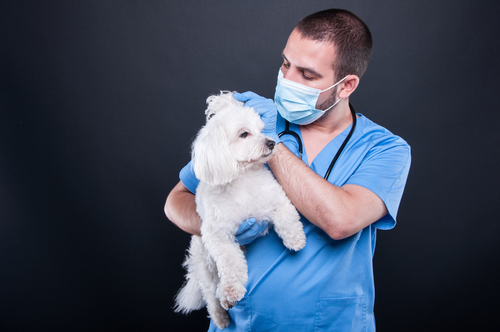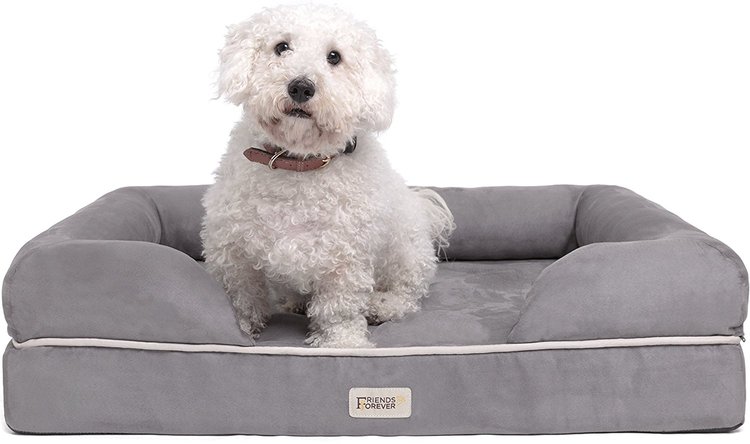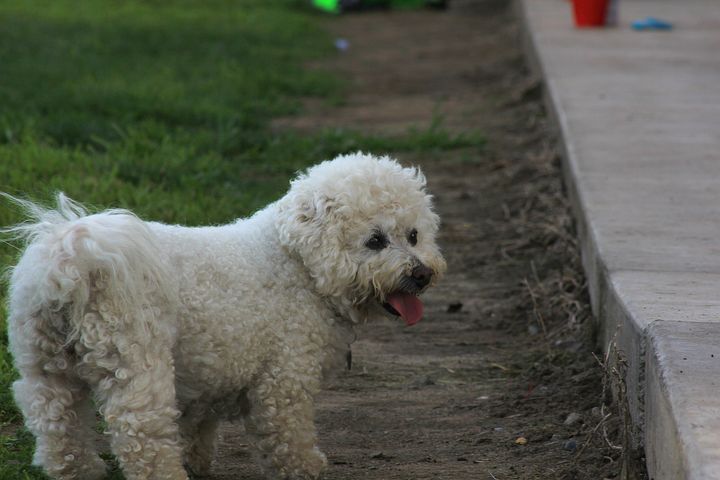Osteoarthritis in dogs or degenerative joint disease, seen in about 20% of older dogs, affects their spine and joints. Even simple movements are stiff and painful.
Just as with people, cold damp weather seems to make the symptoms of arthritis in dogs worse.
What is Dog Arthritis?
Osteoarthritis in dogs is a condition that develops over time. If your dog suddenly develops symptoms, he probably does not have arthritis. Symptoms of arthritis typically appear slowly, over a period of months.

Here is how osteoarthritis develops. The joint cartilage, or cushioning in the joints, becomes worn over time.
As the joints become worn out, they also become inflamed. With the inflammation, joints start to be swollen, painful and they are warm to the touch.
As the arthritis progresses, a dog’s joints become painful and stiff, just like we see in people. Some dogs are simply uncomfortable, while others experience a serious debility.
Eventually, your dog could lose his ability to move, or he could actually be paralyzed.
What Happens in Arthritic Joints?
As arthritis progresses, the cartilage in the joints becomes thinner. In addition, fluid builds up in the affected joints.
Your dog may also have bone spurs or bony growths around a joint. These can irritate other tissues and nerves and can be very painful.
In addition to lameness, a dog can develop thickening and scar tissue in the joint and wasting away of the surrounding muscles.
As these changes happen, the joint becomes inflamed and it continues to break down and destroy cartilage. The more the arthritis progresses, the more disabled a dog becomes.
When the cartilage is broken down, the ends of the bones rub together, causing damage to the bones. In dogs, we see this in hips, shoulders, knees, and elbows.
Eventually there is enough damage to the joint that you can actually hear a clicking or grating sound when your dog moves.
What Causes Canine Osteoarthritis?
Hip Dysplasia
While hip dysplasia is a common cause of osteoarthritis in larger dogs, for the Bichon Frise, the most common cause is simple wear and tear.
Bacteria
However, there is another form of arthritis that is becoming more common in recent years. It is known as infectious or septic arthritis. Septic arthritis is bacterial and it is spread through the blood or it enters through a cut or break in the skin.
Ticks
Your dog can also get this type of arthritis from ticks. If your dog acquired Rocky Mountain Spotted Fever or Lyme Disease from a tick, she could develop arthritis.
Injuries
In addition, dogs can get arthritis in an old injury, especially to the ACL (anterior cruciate ligament).
Diet
Or a dog can become arthritic because of a high calorie, high carbohydrate diet that can cause your pet’s body to grow faster than her cartilage does.
Diagnosis of Canine Osteoarthritis
Since your dog really can’t tell you exactly what is hurting and how much, your vet will depend on you to observe any changes in your dog’s behavior.
Your dog’s veterinarian will use these criteria to diagnose:
- Your dog’s medical history – including any trauma or injuries to joints
- Physical examination – the vet will check for tenderness, swelling and warmth in the joints
- X-rays
- Blood tests
- MRI
- Lab tests on fluid from the joint
Using these tests, your vet will determine if your dog has osteoarthritis, septic arthritis, or rheumatoid arthritis.
Septic arthritis or infectious arthritis is treated with antibiotics. If it is discovered early enough, your dog may not have permanent damage.
If septic arthritis has progressed, your dog may need flushing of the joint cavity and surgery to remove dead, damaged or infected tissue in the joint.
In the end, osteoarthritis in dogs is the most common found in Bichons. While there is no cure for osteoarthritis, it is manageable through medical treatment, proper diet and weight management and regular exercise.





Leave a Reply